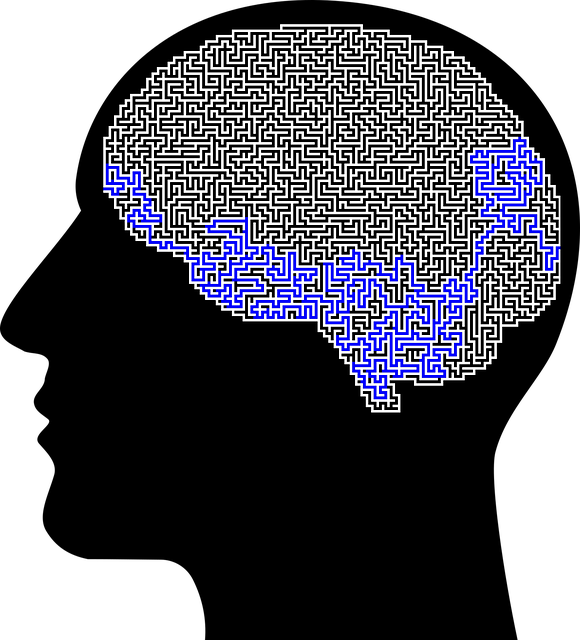In online therapy, understanding RFM (Risk, Frequency, Motivation) is crucial for professionals, enabling personalized plans, early crisis intervention, and positive behavioral changes. Digital platforms offer unique opportunities to enhance resilience through engaging virtual exercises like mindfulness and cognitive reframing. Implementing RFM strategies, including reliability, frequency management, and flexible pricing, boosts client engagement and outcomes. Continuous improvement involves evaluating client satisfaction, tracking therapeutic progress, and integrating data analytics for targeted interventions based on feedback and trends, ensuring effective and accessible online therapy.
“Enhance online therapy effectiveness with RFM (Resilience, Flexibility, and Mastery) exercises. In today’s digital era, online therapy is transforming mental health support. This article explores how RFM principles, designed for digital platforms, strengthen clients’ resilience. We provide a step-by-step guide for therapists implementing RFM strategies, focusing on structured yet flexible sessions. Additionally, we discuss measuring success and continuous improvement techniques to ensure optimal outcomes in online therapy, catering to diverse client needs.”
- Understanding RFM: The Core Principles and Its Relevance in Online Therapy
- Designing Resilience Building Exercises for Digital Platforms
- Implementing RFM Strategies: A Step-by-Step Guide for Online Therapists
- Measuring Success and Continuous Improvement in Online Mental Health Support
Understanding RFM: The Core Principles and Its Relevance in Online Therapy

In the realm of online therapy, understanding RFM (Risk, Frequency, and Motivation) is a game-changer for mental health professionals. This core principle offers a structured framework to assess and manage client risks, especially in virtual settings. By evaluating the frequency of harmful behaviors or thoughts and the level of motivation for change, therapists can tailor their approach to each individual’s unique needs. RFM analysis enables personalized treatment plans, enhancing the effectiveness of online therapy sessions.
The relevance of RFM extends beyond risk assessment; it facilitates a comprehensive understanding of clients’ psychological landscapes. Through this method, professionals can identify early warning signs of potential crises and intervene promptly. Moreover, by gauging motivation, therapists can foster engagement in Stress Reduction Methods, promoting positive behavioral changes. This proactive approach not only benefits individual clients but also contributes to the development of public awareness campaigns, ultimately enriching the online therapy landscape.
Designing Resilience Building Exercises for Digital Platforms

In today’s digital era, where online therapy is becoming increasingly prevalent, designing effective resilience-building exercises for digital platforms requires a thoughtful and tailored approach. These exercises aim to enhance clients’ emotional healing processes and promote inner strength development by providing accessible tools that can be integrated into virtual therapeutic settings. The key lies in translating traditional resilience-focused activities into engaging, interactive formats suitable for online consumption while ensuring they remain effective and beneficial for users’ emotional regulation.
By leveraging digital tools, therapists can create dynamic environments that foster connection, community, and support, even when clients are physically distant. Incorporating various techniques such as mindfulness exercises, cognitive reframing activities, or virtual group discussions can help individuals build resilience by teaching them to navigate challenges, manage stress, and cultivate a positive mindset. These digital platforms should be designed with accessibility in mind, ensuring that users of varying technical proficiency can participate fully, ultimately empowering them with the skills to cope with life’s uncertainties.
Implementing RFM Strategies: A Step-by-Step Guide for Online Therapists

Implementing RFM (Reliability, Frequency, and Monetary value) strategies is a powerful approach for online therapists looking to enhance their client engagement and improve outcomes. Here’s a step-by-step guide to help professionals integrate these techniques into their practice:
1. Assess Client Engagement: Begin by analyzing your existing client base. Identify those who consistently engage in therapy sessions, their session frequency, and the financial commitment they make. This data will highlight your most valuable clients and areas for improvement.
2. Reliability Building: Focus on establishing a sense of trust and consistency. Send regular check-ins, provide timely responses to inquiries, and ensure reliable access to your online platform. You can also offer additional resources or guidance tailored to individual client needs to demonstrate reliability in support of their mental wellness journey.
3. Frequency Management: Encourage clients to attend sessions regularly by setting clear expectations. Develop a schedule that works for both parties, ensuring sessions occur at consistent intervals. Consider offering incentives or rewards for attending consecutive sessions to boost engagement and adherence.
4. Monetary Value Enhancement: Review your payment structure and explore options to make therapy more accessible without compromising quality. You could introduce tiered pricing models or offer discounts for long-term commitments. Additionally, educating clients about the financial benefits of consistent therapy attendance through mental wellness journaling exercises can foster a deeper sense of investment in their emotional intelligence development.
5. Community Outreach: Extend your services beyond individual therapy by implementing a community outreach program. This could involve hosting online workshops or webinars on various topics related to mental health and emotional well-being. Such initiatives not only increase accessibility but also build a supportive community around your practice, encouraging ongoing client engagement.
Measuring Success and Continuous Improvement in Online Mental Health Support

Measuring success and fostering continuous improvement are vital components when implementing online mental health support. This includes not only gauging client satisfaction but also tracking therapeutic outcomes, such as reduced symptoms of anxiety or depression. By utilizing robust evaluation methods, professionals can assess the effectiveness of online therapy sessions and identify areas for enhancement. Regular feedback from clients through surveys or interviews provides valuable insights into the quality of care received, allowing therapists to adapt their approaches accordingly.
Additionally, integrating data analytics tools enables a deeper understanding of client progress over time. This data-driven perspective facilitates the development of targeted interventions, such as refining therapy techniques, personalizing treatment plans, and even designing mental health education programs or stigma reduction efforts based on observed trends. As online therapy gains popularity, ongoing assessment and refinement ensure that services remain effective, accessible, and aligned with the evolving needs of those seeking support in this digital realm.
The integration of Resilient Factor Model (RFM) exercises into online therapy platforms offers a promising approach to enhancing mental health support. By understanding the core principles of RFM and its relevance in digital settings, therapists can design effective resilience-building programs tailored to online environments. Implementing these strategies through structured steps ensures a comprehensive and accessible therapeutic experience. Continuous measurement of success allows for ongoing improvement, ensuring that online therapy remains a robust and game-changing solution for folks seeking support from the comfort of their homes.








